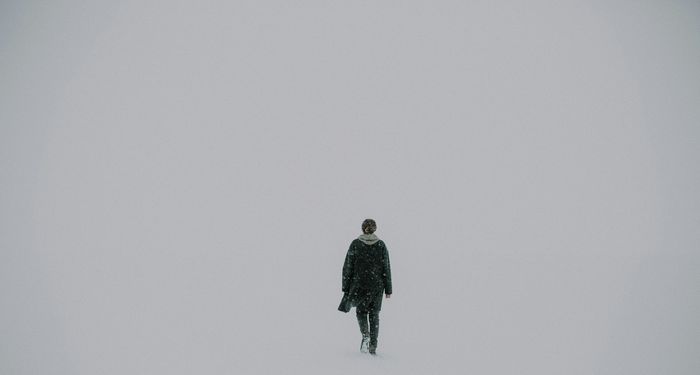The TikTok-ification of film and TV
Olivia Townsend reflects on films and shows through TikTok-tinted glasses

As we entered 2024, I knew I wasn’t alone in pledging that I was going to spend less time on TikTok this year. I also knew that I had said the same thing for the past three years, and that this resolution has always been unsuccessful. But while it may not have seemed like the most productive activity at the time, all those hours scrolling on film and TV TikTok have taught me a few things about the changing shape of the industry today.
More and more frequently, people have been observing lines and hooks from pop songs that are clearly written to turn into a trending sound, dance or lip sync on TikTok. Whilst I doubt directors are making films with TikTok edits at the top of their priorities, there is something to be said for the increasing connection and impact that TikTok is having on film discourse.
Saltburn offers a textbook example of these changes. Whether it’s commentary on the film’s incredible soundtrack circa 2006 or thirst-traps of Jacob Elordi, TikTok content and commentary of the film has been inescapable. Emerald Fennell certainly knew that the film bore the potential to cause a social media stir. From the stunning aesthetics to the cast and general discomfort of the film, it bears all of the hallmarks necessary to generate a TikTok frenzy.
“The days of a simple Tumblr gif are gone and a Little Women edit to the tune of ‘Champagne Problems’ takes its place”
Romanticisation is one of the greatest and fastest growing ways that TikTok is changing the world of film and TV. Montages of cinematography, edits of acting highlights and fan-cams of Hollywood’s hottest-of-the-month are testament to TikTok’s ability to retrospectively romanticise films and TV shows. Archetypes of this genre include amateur recreations of Wes Anderson aesthetics, montages of the celebrated “it’ll pass” scene from Fleabag, and powerful female monologues from Greta Gerwig films. I salute the heavy-lifting being done by some very skilled editors – I can still picture the iconic Call Me By Your Name edit of Timothèe Chalamet dancing three years on.
Indeed, TikTok has provided a new platform on which films and their artistry can be appreciated. The days of a simple Tumblr gif are gone and a Little Women edit to the tune of ‘Champagne Problems’ takes its place. This new direction isn’t necessarily going to influence the creative vision of filmmakers, but it is creating room for appreciation of indie and arthouse style pictures which, whilst still being big-budget, may not have reached as many audiences without it. I, for one, only discovered Gerwig’s Frances Ha several years ago after seeing the infamous “what I want” monologue clipped on TikTok, prompting the start of a long love affair which I may not have embarked upon without help from the platform’s algorithm.
“Perhaps this retrospective power unlocks an extra dimension to our viewing experience”
TikTok romanticisation also plays a big role in how we remember and reflect on film and TV in hindsight. The Bear had me clenching my jaw and sat on the edge of my seat during its (frequent) stressful moments but after seeing edits of Carmy and Sydney cut alongside the 1975’s ‘About You’, I now fondly imagine the show’s rom-com potential rather than kitchen shouting matches. And university montage edits are almost fun enough to dupe me into thinking that Saltburn was simply a coming-of-age piece set amongst Oxford’s gorgeous spires. The power of this retrospect has seen older films experiencing a renaissance. The Dead Poets Society, Before Sunrise and 10 Things I Hate About You have reached audiences that were too young to appreciate them during their release. Perhaps this retrospective power unlocks an extra dimension to our viewing experience. The processes of rewatching, reviving and reconsidering films and TV shows through the lens of TikTok heightens emotional currents, character dynamics or themes that you might have missed the first time around.
On the other hand, I find myself sceptical of the belief that TikTok has the power to dictate audience reception to a film or TV show. Highly anticipated pictures like Barbie saturate TikTok months before their release and quite often the trailer material alone is enough to generate ample discourse. FilmTok has already had a field day dissecting the promotional scenes released for Martin Freeman and Jenna Ortega’s upcoming Miller’s Girl – a disturbing thriller about a teacher-student relationship. Wonka was ridiculed on TikTok long before its cinematic release but I found that it was actually a dose of kitschy festive cheer. Preconceptions can be helpful, but there is also value in going in blind and unbiased to a film or TV show and forming an opinion independent of hive-minded TikTok commentary.
For better or worse, TikTok is transforming the way we watch, remember and talk about film and TV. Though its algorithmic power to influence viewing habits cannot be denied, the TikTok-ification of film and TV also heralds the creation of space and entry into film and TV discourse. And with that, let’s keep those Greta Gerwig edits coming.
 News / Candidates clash over Chancellorship25 April 2025
News / Candidates clash over Chancellorship25 April 2025 Music / The pipes are calling: the life of a Cambridge Organ Scholar25 April 2025
Music / The pipes are calling: the life of a Cambridge Organ Scholar25 April 2025 Interviews / Dr Ally Louks on going viral for all the wrong reasons25 April 2025
Interviews / Dr Ally Louks on going viral for all the wrong reasons25 April 2025 News / Cambridge professor paid over $1 million for FBI intel since 199125 April 2025
News / Cambridge professor paid over $1 million for FBI intel since 199125 April 2025 Arts / Plays and playing truant: Stephen Fry’s Cambridge25 April 2025
Arts / Plays and playing truant: Stephen Fry’s Cambridge25 April 2025






